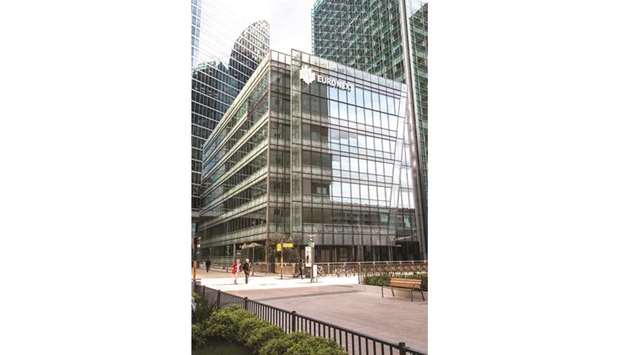Stock markets rallied yesterday on expectations that trade war tensions are easing and that US interest rates will fall this year.
Prior to the release of surprisingly weak US monthly job figures, markets had welcomed a report that the United States could delay its plan to hit Mexico with tariffs.
Stock markets have been banking on the chances of US interest rate cuts and reinforced European Central Bank support for the eurozone.
Yesterday, London’s FTSE 100 closed 1.0% up at 7,331.94 points, Frankfurt’s DAX 30 closed 0.8% higher at 12,045.38 points and Paris’ CAC 40 ended with a 1.6% gain at 5,364.05 points, while the EURO STOXX 50 added 1.2% at 3,378.38 points.
The US Non-Farm Payrolls (NFP) data were “viewed even more keenly than usual with speculation mounting that the Federal Reserve are set to begin cutting interest rates,” said David Cheetham, analyst at XTB trading group.
The data showed that US job creation slowed sharply in May as hiring dried up in major industries, and that wage growth had stagnated.
US employers added only 75,000 net new positions last month, far fewer than the 180,000 that economists had been expecting, with sudden drops in hiring in healthcare, education and construction.
Neil Wilson at Markets.com remarked that the numbers “grossly missed expectations.”
“Market odds of a June rate cut just increased for sure,” Wilson said, although he and other analysts did not expect the Fed to move quite so quickly.
US stocks had bounced higher on Thursday after Bloomberg News reported that Washington could push back its plan to impose tariffs on Mexico on June 10 to allow more time for talks on illegal immigration.
Upbeat comments from Mexican Foreign Minister Marcelo Ebrard, who said the talks with US officials had yielded progress, underpinned the positive mood.
Export-dependent Mexico has been scrambling to stem the flow of Central American migrants to the US — deploying troops along its border with Guatemala, blocking a new caravan and freezing the bank accounts of suspected human traffickers — in a bid to appease Washington.
“There is a good chance that the markets are getting ahead of themselves here,” cautioned Jasper Lawler, analyst at London Capital Group.
“History tells us that there have only been a limited number of occasions where (US President Donald) Trump hasn’t stuck to his word over a trade tariff threat.
Mexico is pushing for more time but we are less convinced than the markets that Trump will grant it.”
Amid mounting concern for global economic activity, especially because of the US-China trade war, central bankers have taken measures to head off a potential slump.
On Thursday, the European Central Bank said it would extend historic low interest rates for the eurozone well into next year.
“We now expect them to remain at their present levels at least through the first half of 2020,” an ECB statement said.
That along with news the ECB would offer highly favourable conditions to banks in a third round of cheap loans known as TLTROs, reassured investors as the eurozone faces increased concern about growth and inflation.

The Euronext logo is seen on the exterior of the Paris Stock Exchange in La Defense business district. The CAC 40 ended with a 1.6% gain at 5,364.05 points yesterday.
